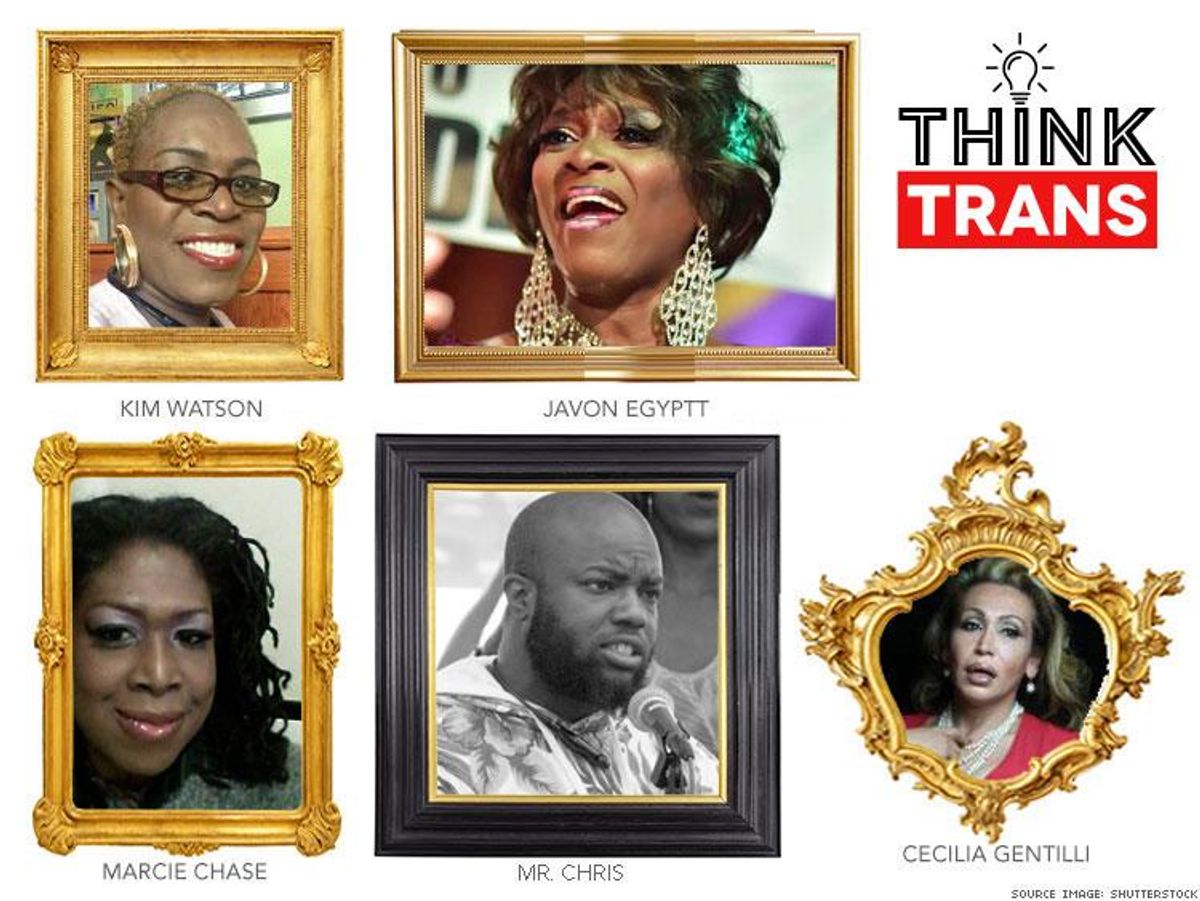
On the heels of a landmark congressional forum on violence against transgender Americans, five elders speak out about the past, present, and future of resilience.
November 20 2015 4:51 PM EST
September 17 2017 3:40 AM EST
CleisAbeni
By continuing to use our site, you agree to our Private Policy and Terms of Use.

On the heels of a landmark congressional forum on violence against transgender Americans, five elders speak out about the past, present, and future of resilience.
Groups across the country are transforming the usual vigils for Transgender Day of Remembrance into a series of National Trans Marches of Resilience.The Advocate spoke with five New York City-based black and Latina transgender elders about their own understandings of trans resilience (exact ages of the elders are witheld to protect their privacy). All combined, these activists hold a century's worth of experience in providing direct services to the population hardest hit by violence: low-to-no-income trans people of color.
The wisdom of Cecilia Gentili, Javon Egyptt, Kim Watson, Mister Cris, and Marcie Chase highlight an important truth: While transgender women of color have lost their lives to violence at high rates, standout elders have worked steadily on-the-ground, case-by-case, and person-by-person to save lives with infusions of mentorship, food, shelter, clothing, and medical care.
The five elders bemoan how their outreach efforts and community organizing are historically underfunded while a few better-funded nonprofits and individuals provide equally important yet indirect services via legislative action and research.

Gentili is the trans health coordinator for the Apicha Community Health Center. A native of Argentina currently based in Jackson Heights, Queens, Gentili came to New York City as a refugee from violence by way of Miami just over 15 years ago. Since that time she has become a much-respected antiviolence, health, and wellness advocate and an incisive communicator about the realities of transgender immigration.
Spanish-speaking and Latin American countries outside of Europe hold the highest number of worldwide homicides and attacks against transgender individuals, and her wisdom about the nature of that violence, the gross effects of the trauma, and the way the violence undermines public health is especially invaluable.
"Unfortunately, as a trans person who lives most of her time presenting in a very feminine way and who comes from a country [in] Latin America, I have a very violent past," says Gentili, "I started my transition in the 1980s and '90s, and the idea of trans identity was not welcome at all."
She describes how her very gender was policed almost daily. She endured physical and verbal mistreatment from multiple parties -- people in her community, state administrators in records offices, and the police.
Even more than peer-to-peer bias or attacks from strangers, Gentili stresses that, in her home country, abuse from law enforcement was particularly acute.
"When the violence comes from the police, who are you going to report it to? You are scared to report. Violence is not just a punch in the face. It comes in many ways."
Gentili further emphasizes that, prior to the recent enactment of trans rights in Argentina, police brutality in her home country went hand in hand with anti-trans laws like the prohibition against "misleading," a law used frequently to harass and imprison trans people for their gender expression or clothing choices.
She points out that these kinds of Latin American laws are similar to laws in the United States called "sumptuary laws" or "criminal impersonation" laws -- codes that in many cases remain on the books in many states and that were used to harass and imprison trans Americans. Gentili notes that one way that the spirit of these laws have not left the United States is in their rigid enforcement within prisons.
Gentili's life mission is to bring trans individuals into contact with safe, affirming services that give them a voice. She says that she has about 400 trans clients. No trans person is turned away for health and wellness services at Apicha, even those who cannot pay.
To the younger generation, Gentili offers the following advice:
"I know that this [life] is hard, but you have to be brave and you are fortunate for living in this time and for being able to do what you do without facing what we faced in the past. I'm not saying that things are perfect now. But they are easier. You can change your name, your gender, go to school. Take a stand. Live your transition. We are far from perfect. But we are better than the '80s and '90s. Use these freedoms. Use your voice to be a factor for change."
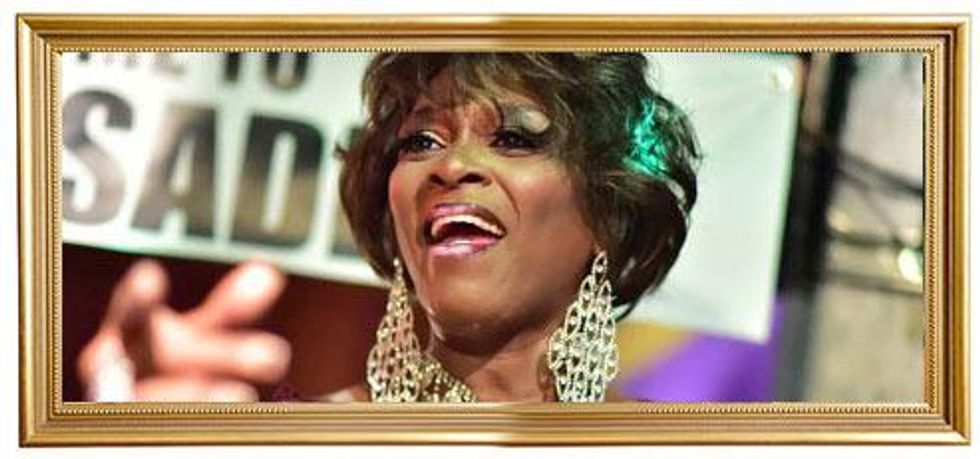
"Living one's truth requires work," says Egyptt, and much of that work involves reducing the possibility of harm in one's life as a trans person while, at the same time, not blaming oneself for violence if it arises. This work, she insists, stands among the most sensitive and delicate of balancing acts.
Egyptt has facilitated a trans support group at Mahattan's Housing Works and she worked as a Trans Coordinator at New York City's Audre Lorde Project where she co-led workshops about forging healthy relationships that eliminate and reduce the harm of sexual, domestic, and intimate partner violence.
Egyptt is also a much-in-demand stylist, makeup artist, and drag entertainer with 30-plus years of pioneering performances. Her complex identification proves (in contrast to some opinions) that some trans people can be both transgender and drag performers.
Along with other advocates who have praised the groundbreaking work of the drag community in the fight for justice, Egyptt points out that in her formative years in the 1970s and '80s in New York City, key black drag elders played a vital role in mentoring young black trans women before the term "transgender" was in vogue.
Three years ago, Egyptt was invited to become an honorary member of the House of Labeija, the first and oldest social group within the New York City black and Latina drag ball community (full disclosure: This reporter is the cousin of Pepper Labeija).
"The generation that I grew up in [had] Paris Dupree, Pepper Labeija, Dorian Corey, Avis Pendavis -- [these] people introduced me into the ballroom and show world," explains Egyptt. "These are the women who welcomed me in. When I met these people they scared me to death because they carried themselves with respect and they had big followings. But I admired them."
Egyptt went on to explain that, while they may have been low-income, these pioneers modeled a respectability that is sometimes not represented by some of the younger generation of gender-variant people of color within the late hip-hop area.
She recalls one incident in the early 1980s when she was first invited to perform for a show at the now-defunct Anvil nightclub in midtown Manhattan, where Dorian Corey and Pepper Labeija sometimes headlined shows. That night they asked Egyptt if she was ready to go on stage to perform, and naively, she answered yes, despite the fact that her attire was not suitable for the evening's festivities. "Oh, we got one!" Egyptt recollects them as saying, and so began years of tutelage in how to carry oneself in a respectful, admirable way.
Egyptt hastens to add that such respect is not about pleasing the mainstream, deferring to trends in trans politics, or blaming the victim. Rather, it is about learning how to raise one's self-esteem in a world of oppression as one reaches for honor among one's peers. She points out that before the advent of trans-affirming social services in the 1980s, grassroots mentorship filled a void in the passing on of the work of living one's own truth.
When this tutelage is not evident, some in the younger trans generation often end up self-harming, Egyptt says. They rush their transitioning by using black market surgical procedures. So alluring are these dangerous procedures that in her mentorship Egyptt has had to use powerful methods to urge some of the younger trans women with whom she works away from danger. With their consent, Egyptt shows them the scars on her own body from botched interventions where the silicone moved from one area to another to the point where it had to be removed.
Referring to a key grassroots term for medical transitioning, Egyptt explains that "the 'work' is not the surgery. The work is the wisdom of knowing how to be safe when obtaining the surgery." But that safety must be backed up by health services offered by supportive organizations.
Egyptt is particularly keen to share the dangers of intimate partner violence among the black and Latina trans women with whom she works. She urges them to rethink the propensity to become smitten with so-called trade, or hypermasculine men whose behavior reenforces stereotypes of toxic, abusive machismo.
She shares that often in such partnerships trans women are urged to "pass" or to "be real" to their detriment because, if their trans identities are discovered, they may be in grave danger. Or, if the relationships are themselves carried on in secret, then the trans women are further imperiled if the macho man's friends discover the relationships. She has seen such scenarios result in brutal maimings and, as in the case of Zella Ziona, murder.
Without revealing names that would breach privacy, Egyptt cites scores of past cases over her over 40 of activities in which trans women did not set clear boundaries regarding where they go and with whom they associate. The result was pronounced violence and even death, and invariably, in years past such cases went largely unreported.
She also critiqued certain forms of drag expression, including the kind that revels in trans women calling themselves pejorative terms:
"Some people misgender or talk down about themselves or call their friends nasty names and then they turn around and become upset when they are misgendered or called out. The b word or sissy -- we have got to stop talking to each other any kind of way if we want to be taken seriously. It takes time to change our values. But it is never too late to change."
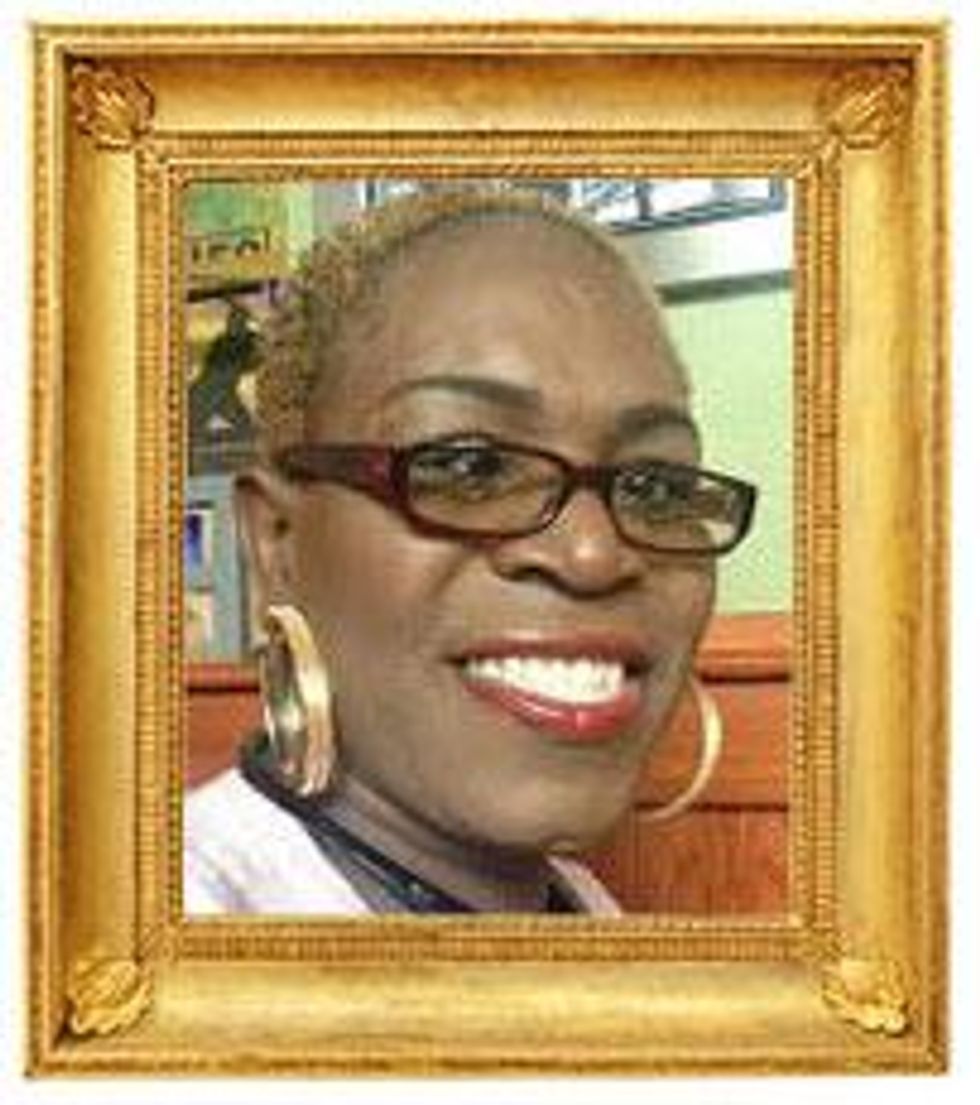
Cris and Watson are the cofounders of a five-year-old innovative nonprofit organization called Community Kinship Life that provides health and wellness services to gender variant individuals in the Bronx.
Cris serves as the executive director of CK Life and he received a proclamation from the Bronx borough president for his pioneering advocacy.
The Bronx LGBTQ Center bestowed its 2014 Christine Jorgenson Award on Watson.
"We serve all genders, and a lot of our clients are trans men," Cris explains, and he referenced the CK Life's pathbreaking "surgery scholarship" program that he created, which helps low-income individuals gain surgical medical interventions.
Cris stresses that the obstacles to happiness for people of trans experience are frequently health-related, and being able to transition safely without relying on black market means is a critical part of being one's true self.
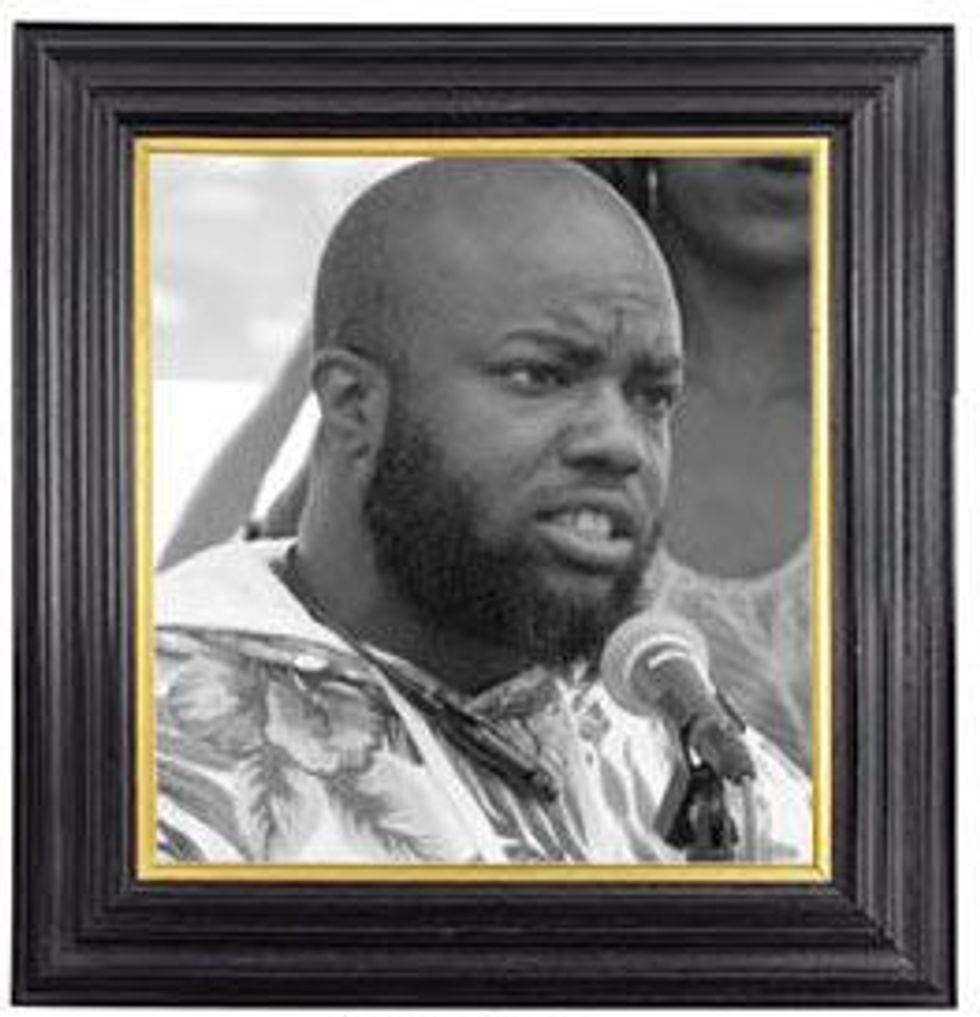
"When you cannot be safe where you live and work and you are harassed by the people who are trying to protect you, then something is very, very wrong," notes Watson who, like Gentili, cites police brutality and insensitivity as a persistent problem for trans individuals living in New York boroughs outside Manhattan.
"It begins with cultural competency," Watson explains. "Our efforts must be culturally sensitive. First the public must understand who we are and learn about our realities and become respectful of our needs."
Watson made history as the first person to adapt the University of California, Los Angeles, psychiatry professor Gayle E. Wyatt's "Healing Our Women" HIV risk-reduction program to the transgender community. The program contains four components: (1) screening; (2) dissemination of program materials; (3) training of facilitators; and (4) evaluation, and it is unique in the manner in which it helps providers and clients understand the unique cultural backgrounds and worldviews of individuals so that services are directly tailored to their needs.
"We cannot think that services come in a one-size-fits-all package," Watson says. "People of trans experience lead complex lives and we have to be particularly sensitive about taking the time to understand the obstacles that we face."
"All the programs in the world won't stop the problems with the police," emphasizes Cris. "That's why we need change in this area and we need it now. The lawsuit [of White] against the NYPD is not about anything new. The precincts in our neighborhoods can be hostile and we have been demanding action for years."
Cris clarifies that the everyday violence that many trans people face from peers and strangers is compounded by the disrespect and harassment of law enforcement.
He notes that some people outside of neighborhoods with strong presences of people of color may not realize the high degree of police surveillance and harassment. If cisgender neighbors experience such abuse at high rates, Cris suggests, then imagine the problems when trans neighbors encounter transphobic cultural insensitivity when they contact police.
"No discussion of violence against people of trans experience, especially of color, is complete without a discussion of police brutality," Cris maintains.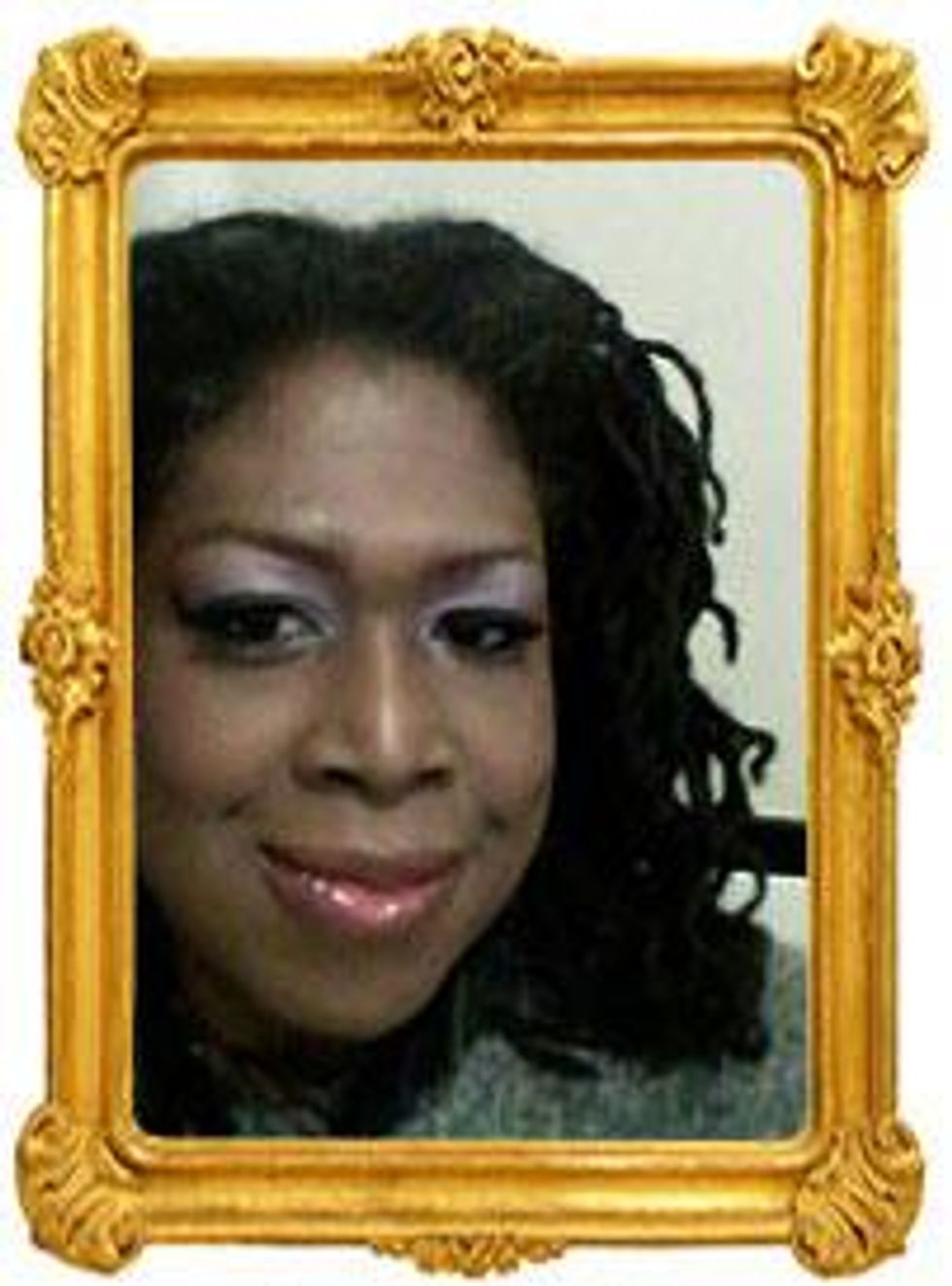
Chase is a community liaison network specialist for Transparent, a new start-up program within East Harlem's Family Health Services. A deeply religious woman of trans experience, Chase is a parent and a longtime health outreach worker with a particular interest in economic justice. Her goal with Transparent is to locate avenues for job training and economic development for trans individuals while offering mentorship about healthcare needs.
"The thing that gets my goat is that transgender people have been murdered for years and none of their deaths got any kind of police attention," Chase stresses. "But now that the word is out it's painful for me when these crimes get publicized [and] the media takes away our humanity, calls us out of our names. I want our lives to be celebrated and not just memorialized."
Chase also said that the people doing the outreach are rarely invited to the table when policies are being made for their protection in the government. This week's congressional forum on violence against transgender people was a rare exception when an outreach specialist named Lala Zannell, a community organizer with the New York Anti-Violence Project sagely suggested on the panel that "putting someone in jail in Los Angeles for a hate crime is not going to stop a transgender woman from being killed in Philadelphia, [but] housing and a job might," according to the Washington Blade.
Chase goes on to insist, "There is a direct correlation between violence against trans people and underemployment, homelessness, and a lack of access to quality health care. When a trans person can't find a job, when they are displaced, they are at-risk of violence to a greater degree."
So many of the trials and tribulations of some low-income trans individuals come from trying to ameliorate poverty and lack of access to employment that accepts trans people as their true selves.
"Let's face it: I was a former sex worker," says Chase. "There were times when I could not get a job as female."
Chase says that if she had been invited to the congressional forum, she would say, "I am a survivor. Intimate partner violence is as much a problem as street violence and police brutality."
Before she was in a relationship with her current husband who she stresses "loves and keeps me," Chase describes a partner who knocked out her teeth, causing lasting harm. This experience drives her to mentor younger trans individuals to monitor the kinds of relationships that they forge and to be extra vigilant about not allowing partners to disrespect them.
"This is our moment when we are the most visible and when we are listened to," Chase shares. She envisions a network of trans-friendly job banks and programs that connect those in need with the resources and training to do jobs openly as their true genders.
She also stresses the need to track each and every person receiving care and to share this data widely. The needs are so great, she insists, that individuals and organizations need not fear competing for or duplicating services; especially in big cities, there is more than enough work to go around.
Chase also praises being transparent about one's identity when it is safe to. But "sometimes you cannot be open because your life depends on it and the closet can serve as protection. But in an intimate relationship it is critical that we are open. Passing can mean passing away."
One of Chase's foremost passions involves raising awareness about the central role that outreach workers play in changing the lives of trans people. Chase movingly says, "For every one life lost, scores and scores are saved."
She praises the difficult work of direct services: "Along with talking about the problem, we need to walk through the problem, roll up our sleeves and fight the problem, to do what so many of us have been doing for years and years: reaching out everyday to those in need, looking in their faces, saving lives, molding lives, doing the legwork that others may not want to do because it takes time and energy, because it's not pretty, because you're not working with the big time, and the reward seems so small."
At the end of her remarks, Chase makes one thing clear: "I could go on and on about the sisters and brothers we have lost. But I want everyone to know about the lives we are saving and how we are lifting each other up, and we've been lifting each other up for years."
Viral post saying Republicans 'have two daddies now' has MAGA hot and bothered